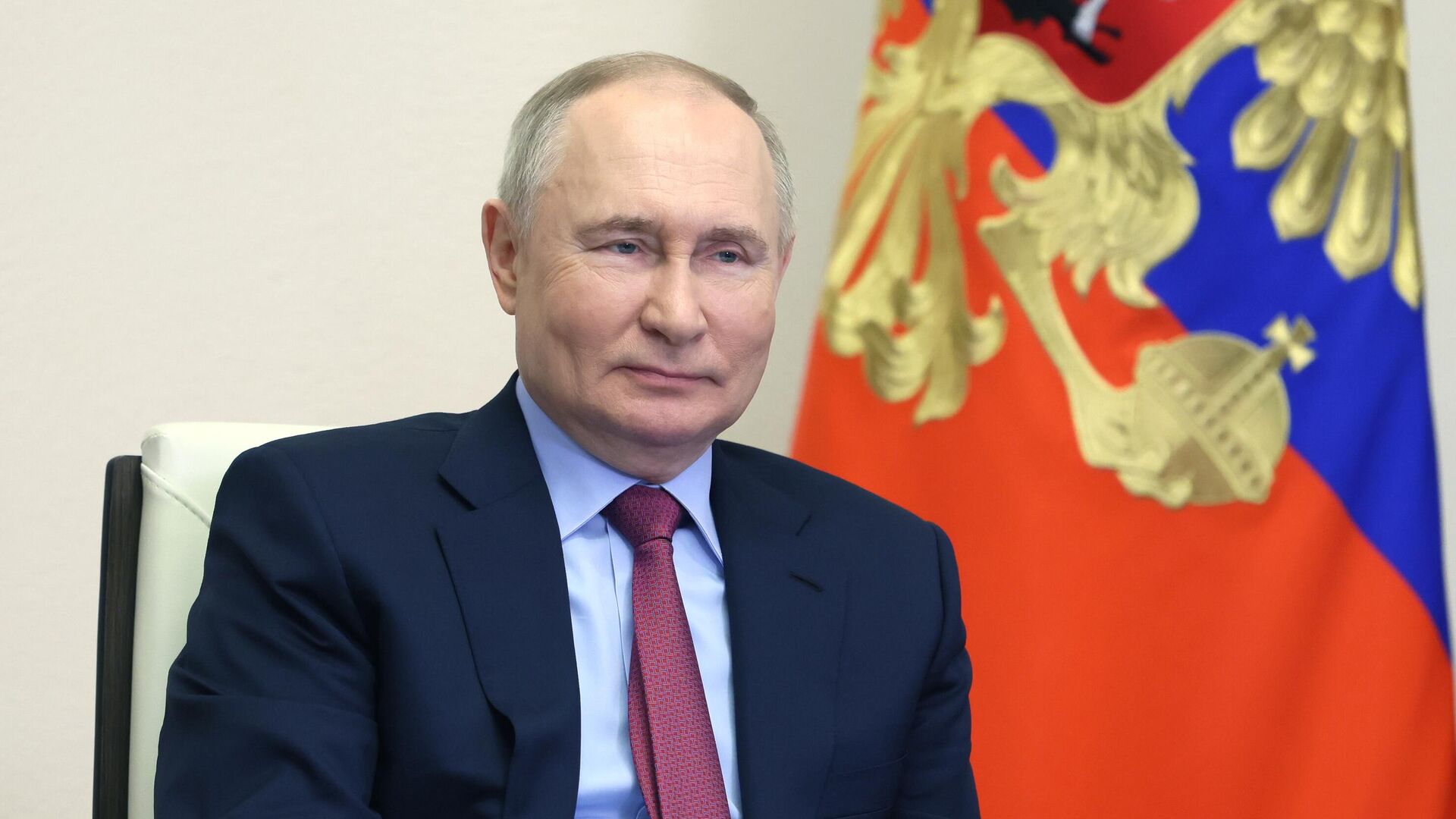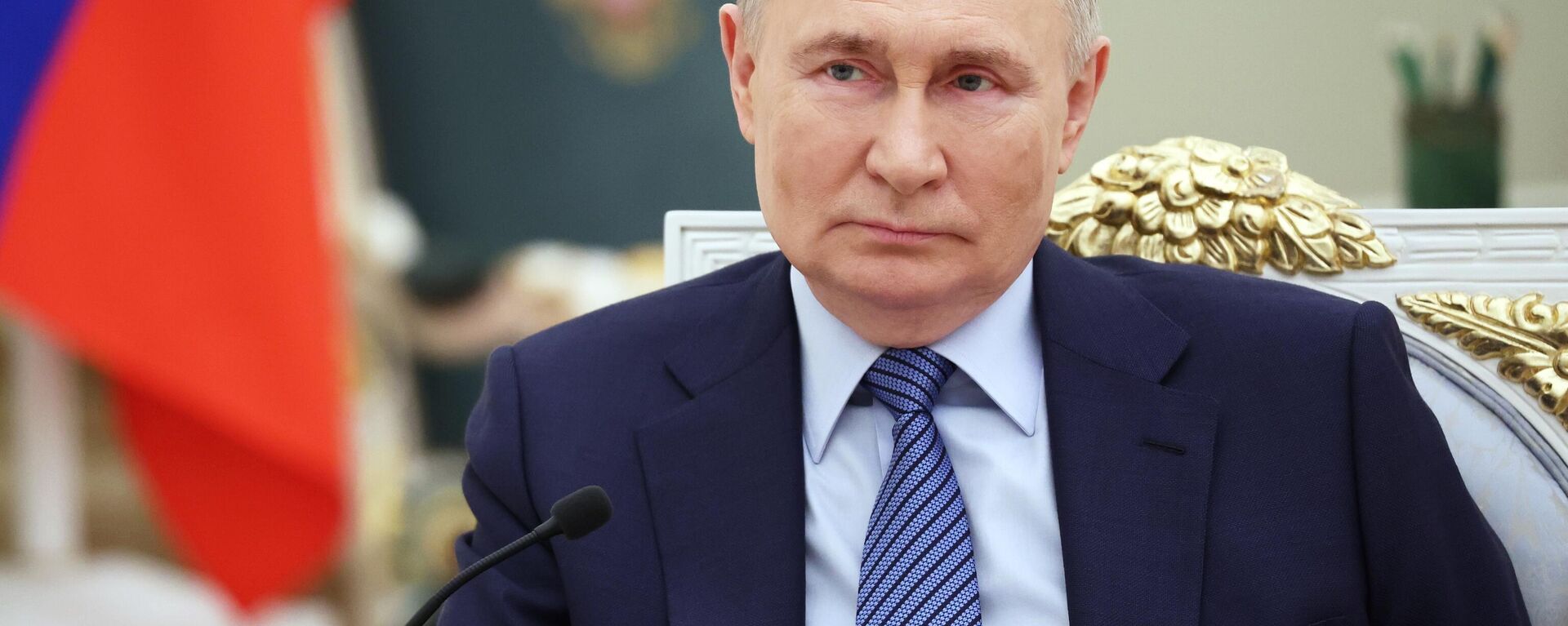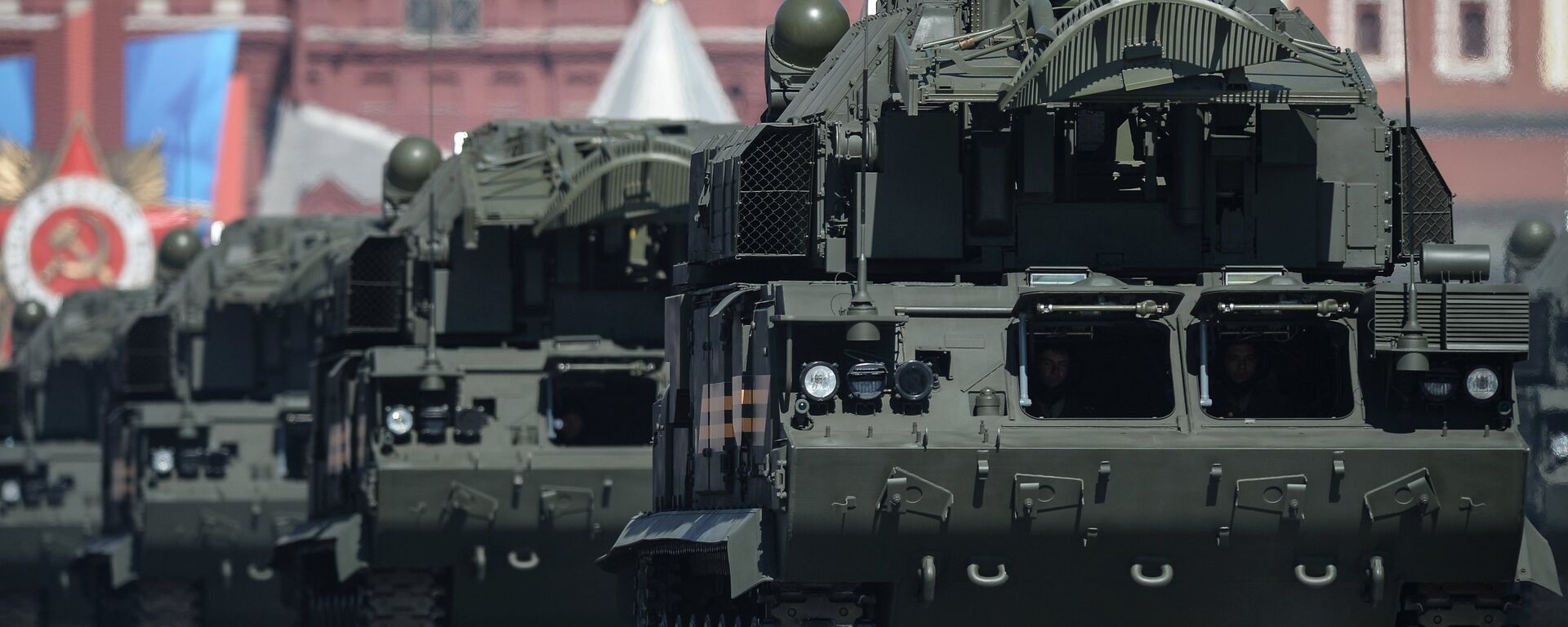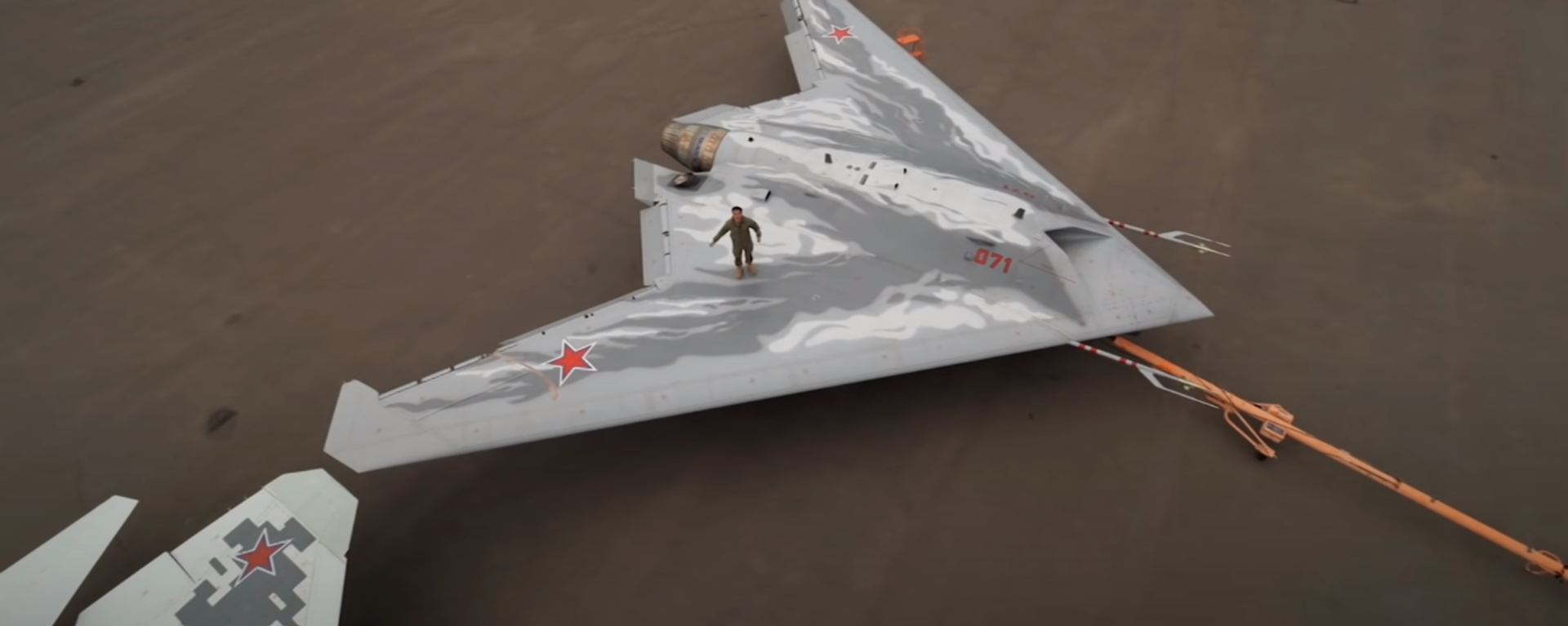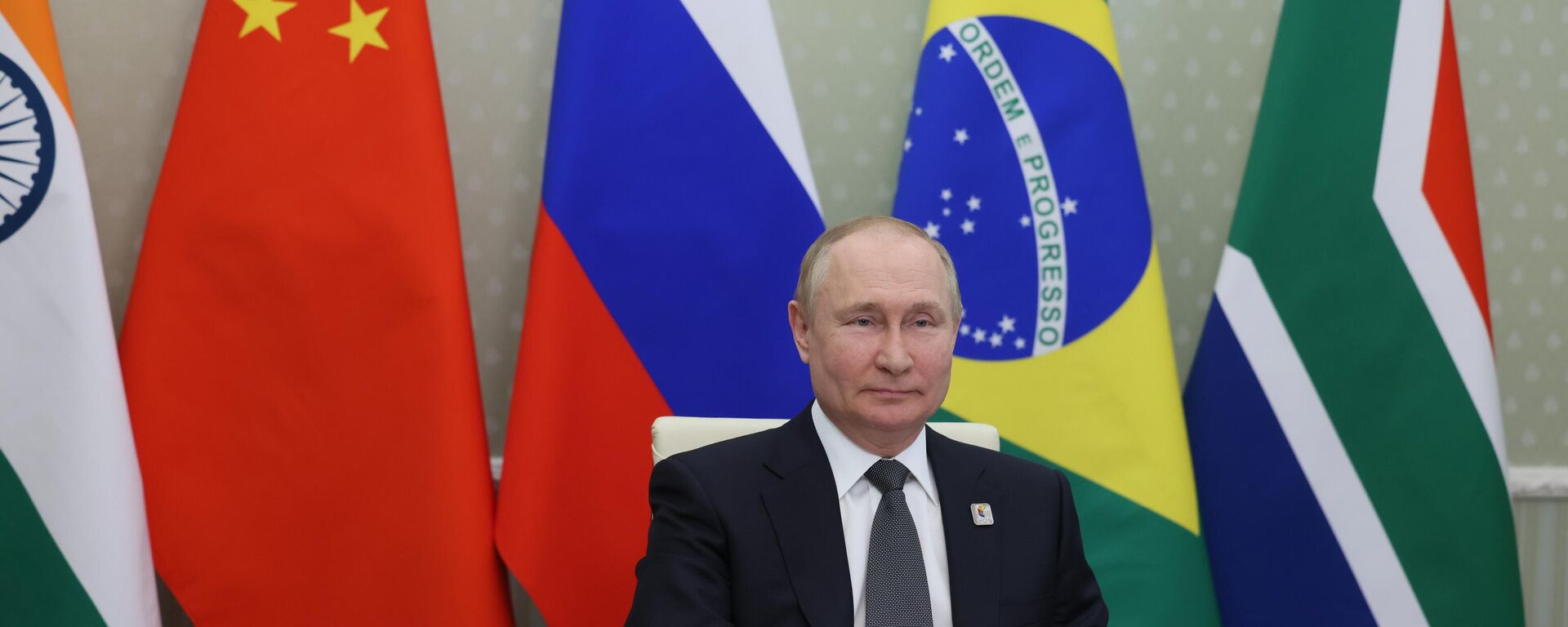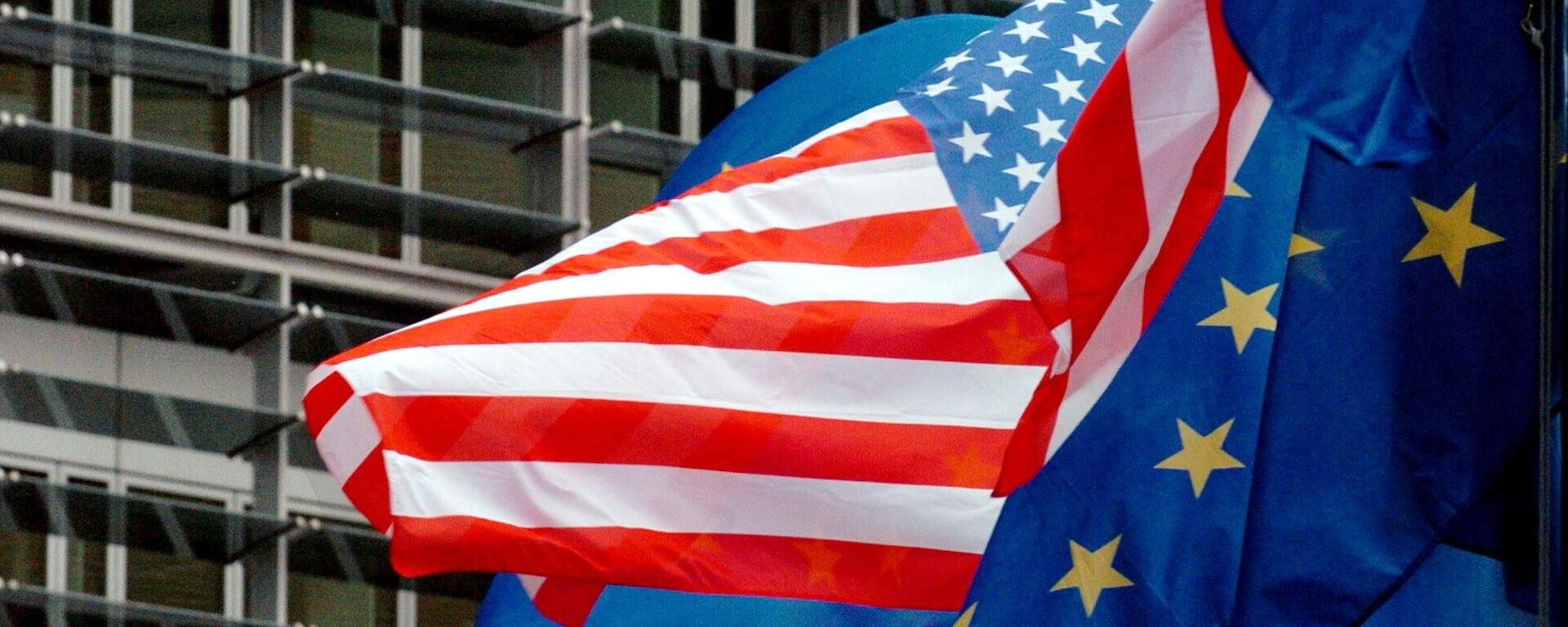https://sputnikglobe.com/20240318/putin-has-won-what-to-expect-from-his-next-six-year-term-1117371860.html
Putin Has Won: What to Expect From His Next Six-Year Term?
Putin Has Won: What to Expect From His Next Six-Year Term?
Sputnik International
Vladimir Putin's victory will ensure Russia's economic rise and military-technical development amid the ongoing global geopolitical shift, Sputnik's interlocutors said, commenting on the presidential election outcome.
2024-03-18T03:00+0000
2024-03-18T03:00+0000
2024-03-18T13:08+0000
russia
vladimir putin
alexei leonkov
dmitry kiselev
russia
west
russian armed forces
brics
s-500
2024 russian presidential election
https://cdn1.img.sputnikglobe.com/img/07e8/03/12/1117401398_0:0:2960:1665_1920x0_80_0_0_1733ba1361ba5e09ca8141318f04ca7e.jpg
Russian President Vladimir Putin was successful in his re-election bid on March 17, securing a new six-year term, having gained over 80% of votes. Over the past several months Putin has outlined his strategy in a series of public speeches and interviews in which he reflected on what has already been done in terms of Russia's socio-economic development and what should be accomplished in the coming years.Sputnik sat down with economic and military experts to discuss possible changes in Russia's policies over the next six years.Military: 'Technological Race' Instead of 'Arms Race'"This work will continue, because, as the special military operation has demonstrated, [Russia's] enemy is looking for ways to beat its modern weapons systems. That is, they are looking for a universal means or, as they say, a miracle technology that will provide them, in their opinion, with a guaranteed victory in any military operation," Leonkov continued.While delivering his address to the Federal Assembly on February 29, Putin chastised the West for attempting to drag Russia into an arms race, stressing that similar tricks were used against the USSR in the 1980s to facilitate its demise.According to Leonkov, Russia won't fall into this trap again: instead of participating in the "arms race" the country has entered a technological competition with the West, outpacing the latter in several spheres. He particularly referred to Russia's hypersonic arms which are currently used in the special military operation along with new Russian-made drone swarms and electronic warfare (EW) equipment.The Russian defense industry is due to undergo technological modernization related to the increase in size of the nation's armed forces up to 1.5 million over the next six years, as per the expert.He particularly expects that a new generation of smaller hypersonic weapons will be built for the land, air and naval forces. The Russian Armed Forces are also likely to get more state-of-art S-500 air defenses, EW systems, high-precision artillery and munitions, as well as arms based on new physical principles.This work will be carried out based on new technologies, modern materials and the latest developments by Russia's design bureaus, which are part of the national defense-industrial complex, Leonkov emphasized.Economy: Russia and BRICS As Alternatives to the WestRussia's military-technological modernization has been possible due to sweeping changes in the country's economic strategy under Putin's watch. Western sanctions have only facilitated Russia's industrialization and diversification of its trade relations with a larger focus on the Global South."Russia has got ahead of Germany in terms of purchasing power parity and replaced it as the fifth largest economy in the world," the president told Dmitry Kiselev, the director general of Rossiya Segodnya, Sputnik's parent media group, in an exclusive interview on March 13. He noted that "it's important that the structure of the economy itself changes, becomes more efficient, more modern and more innovative,” adding that he is planning to work on that if he wins the election.In addition, Moscow and its partners have accelerated the drift away from the US dollar which has long become an instrument of punishment in global trade.The West's decision to freeze the assets of the Russian Central Bank has become a wake-up call for the other countries, according to the observer. "Trust has eroded and will continue to erode faster and faster the more the dollar is seen as an unsafe method for simple financial settlements and as an unsecured store of value," Goncharoff noted."Russia has not only emerged as the largest economy in Europe today but is a visibly vital part of the more economically relevant and fast-strengthening group of nations that now comprise BRICS, Eurasian Economic Union, ASEAN, African Continental Free Trade Area, Gulf Cooperation Council, the Southern Common Market (Mercosur), and the Shanghai Cooperation Organization," the businessman said.This is a larger geo-economic group than even the traditionally visible and rather audible G7, Goncharoff pointed out.Foreign Policy: Russia to Create Space of Geo-Economic SecurityRussia's foreign policy priorities were articulated by Putin in a message to the Federal Assembly, the interview with Kiselev, and an earlier interview with US independent journalist Tucker Carlson, according to Dmitry Evstafiev, political scientist and professor at the National Research University Higher School of Economics (HSE University).Evstafiev outlined four major vectors of Russia's foreign strategy during Putin's next six-year term:The professor noted that Russia will be able to hold constructive dialogue with the West only if sane and responsible politicians in the US and Europe take the reins of their countries and start to talk about security issues and the further architecture of relations in Europe and Euro-Atlantic region, avoiding the language of ultimatums and propaganda. Presently, there are no such politicians at the helm of major Western states, according to Evstafiev."Russia will persistently advance its goals without compromising its interests, which were declared in December 2021," Evstafiev stated in a reference to the Kremlin's draft security agreements handed over to Washington and NATO before the special military operation. "[Russia's] position has been formulated, and Russia will wait until the collective West gets close enough to it in order to start talking."
https://sputnikglobe.com/20240314/putin-russia-has-own-view-of-future-critically-important-not-to-stray-from-this-path-1117315048.html
https://sputnikglobe.com/20231225/top-5-powerful-russian-weapons-that-shattered-myth-of-natos-superiority-in-2023-1115773982.html
https://sputnikglobe.com/20240103/designed-to-win-check-out-six-top-notch-russian-drones-1115964442.html
https://sputnikglobe.com/20240101/russias-brics-presidency-lends-hope-for-proactive-push-towards-multipolarity-1115911001.html
https://sputnikglobe.com/20230831/pepe-escobar-does-brics-need-its-own-currency-1113013286.html
https://sputnikglobe.com/20240118/how-the-west-was-defeated-1116245840.html
russia
west
Sputnik International
feedback@sputniknews.com
+74956456601
MIA „Rosiya Segodnya“
2024
News
en_EN
Sputnik International
feedback@sputniknews.com
+74956456601
MIA „Rosiya Segodnya“
Sputnik International
feedback@sputniknews.com
+74956456601
MIA „Rosiya Segodnya“
ministry of defence, russian armed forces, general staff, nuclear triad, strategic rocket forces, russian ground forces, russian navy, russian aerospace forces, spetsnaz, hypersonic weapons, cyber warfare, brics, emerging economies, brazil, russia, india, china, south africa, multilateral cooperation, economic partnership, new development bank, brics summit, trade relations, global influence, regional integration, de-dollarization, currency diversification, reserve currency, monetary policy, trade settlements, local currencies, bilateral trade agreements, economic sovereignty, international finance, financial stability, currency swap, geopolitical economics, world order, international relations, global governance, unipolarity, multipolarity, balance of power, geopolitical shifts, international law, globalization, diplomacy, global institutions, international community, sovereignty, peace and security, hegemony, russian foreign policy, russian presidential elections, putin, russian president putin, putin won elections, putin elected as president
ministry of defence, russian armed forces, general staff, nuclear triad, strategic rocket forces, russian ground forces, russian navy, russian aerospace forces, spetsnaz, hypersonic weapons, cyber warfare, brics, emerging economies, brazil, russia, india, china, south africa, multilateral cooperation, economic partnership, new development bank, brics summit, trade relations, global influence, regional integration, de-dollarization, currency diversification, reserve currency, monetary policy, trade settlements, local currencies, bilateral trade agreements, economic sovereignty, international finance, financial stability, currency swap, geopolitical economics, world order, international relations, global governance, unipolarity, multipolarity, balance of power, geopolitical shifts, international law, globalization, diplomacy, global institutions, international community, sovereignty, peace and security, hegemony, russian foreign policy, russian presidential elections, putin, russian president putin, putin won elections, putin elected as president
Russian President Vladimir Putin was successful in his re-election bid on March 17, securing a new six-year term, having gained over 80% of votes. Over the past several months Putin has outlined his strategy in a series of public speeches and interviews in which he reflected on what has already been done in terms of Russia's socio-economic development and what should be accomplished in the coming years.
Sputnik sat down with economic and military experts to discuss possible changes in Russia's policies over the next six years.
Military: 'Technological Race' Instead of 'Arms Race'
"The victory of President Putin is a determining factor given that under him [Russia] has built a [technological] chain that starts with research and development work and ends with the delivery of modern weapons and military equipment to the Russian Armed Forces," Alexey Leonkov, a military analyst and editor of Arsenal Otechestva (Arsenal of the Fatherland), told Sputnik.
"This work will continue, because, as the special military operation has demonstrated, [Russia's] enemy is looking for ways to beat its modern weapons systems. That is, they are looking for a universal means or, as they say, a miracle technology that will provide them, in their opinion, with a guaranteed victory in any military operation," Leonkov continued.
While delivering his
address to the Federal Assembly on February 29, Putin
chastised the West for attempting to drag Russia into an arms race, stressing that similar tricks were used against the USSR in the 1980s to facilitate its demise.
According to Leonkov, Russia won't fall into this trap again: instead of participating in the "arms race" the country has entered a technological competition with the West, outpacing the latter in several spheres. He particularly referred to Russia's
hypersonic arms which are currently used in the special military operation along with new Russian-made drone swarms and electronic warfare (EW) equipment.
The Russian defense industry is due to undergo technological modernization related to the increase in size of the nation's armed forces up to 1.5 million over the next six years, as per the expert.
He particularly expects that a new generation of smaller hypersonic weapons will be built for the land, air and naval forces. The Russian Armed Forces are also likely to get more state-of-art S-500 air defenses, EW systems, high-precision artillery and munitions, as well as
arms based on new physical principles.
This work will be carried out based on new technologies, modern materials and the latest developments by Russia's design bureaus, which are part of the national defense-industrial complex, Leonkov emphasized.
Economy: Russia and BRICS As Alternatives to the West
Russia's military-technological modernization has been possible due to sweeping changes in the country's economic strategy under Putin's watch. Western sanctions have only facilitated Russia's industrialization and diversification of its trade relations with a larger focus on the Global South.
"Russia has got ahead of Germany in terms of purchasing power parity and replaced it as the
fifth largest economy in the world," the president told Dmitry Kiselev, the director general of Rossiya Segodnya, Sputnik's parent media group, in
an exclusive interview on March 13. He noted that "it's important that the structure of the economy itself changes, becomes more efficient, more modern and more innovative,” adding that he is planning to work on that if he wins the election.
In addition, Moscow and its partners have accelerated
the drift away from the US dollar which has long become an instrument of punishment in global trade.
"Russia has been seen as the flagship for de-dollarization which was kick-started by Western economic and monetary sanctions, then put into overdrive by forbidding Russia access to the SWIFT system," Paul Goncharoff, a businessman and owner of the consulting company Goncharoff LLC, told Sputnik.
The West's decision
to freeze the assets of the Russian Central Bank has become a wake-up call for the other countries, according to the observer.
"Trust has eroded and will continue to erode faster and faster the more the dollar is seen as an unsafe method for simple financial settlements and as an unsecured store of value," Goncharoff noted.
"Russia has not only emerged as the largest economy in Europe today but is a visibly vital part of the more economically relevant and fast-strengthening group of nations that now comprise BRICS, Eurasian Economic Union, ASEAN, African Continental Free Trade Area, Gulf Cooperation Council, the Southern Common Market (Mercosur), and the Shanghai Cooperation Organization," the businessman said.
This is a larger geo-economic group than even the traditionally visible and rather audible G7, Goncharoff pointed out.
"Another way of looking at this is that Russia has aligned itself with the world’s fastest-growing economies, and these are already making up the bulk of the global growth engine," he stressed. "Part of that new emerging half, as an alternative to the Western bloc is the BRICS, which has just doubled from the original five to ten countries in January 2024, with President Putin instrumental in powering this ahead."
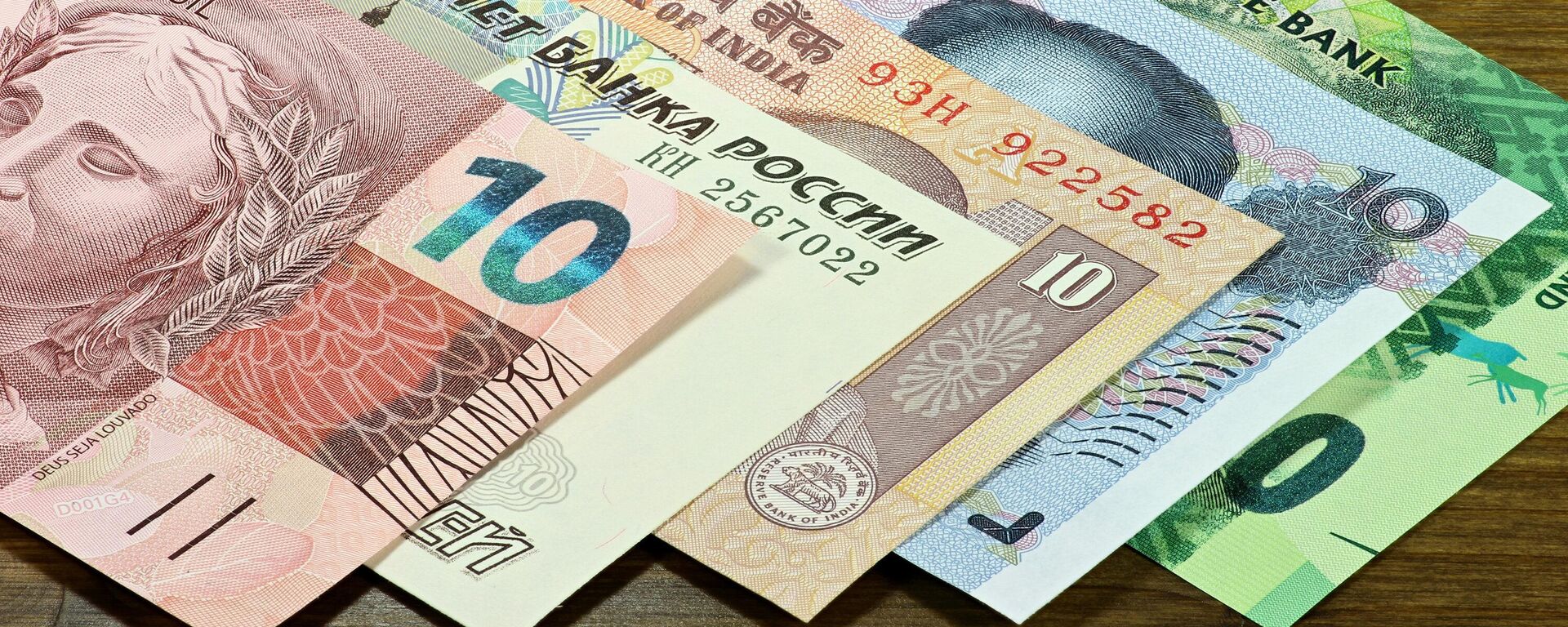
31 August 2023, 12:05 GMT
Foreign Policy: Russia to Create Space of Geo-Economic Security
Russia's foreign policy priorities were articulated by Putin in a message to the Federal Assembly, the interview with Kiselev, and
an earlier interview with US independent journalist Tucker Carlson, according to
Dmitry Evstafiev, political scientist and professor at the National Research University Higher School of Economics (HSE University).
Evstafiev outlined four major vectors of Russia's foreign strategy during Putin's next six-year term:
First, maintaining dialogue with Russia's partners in the post-Soviet space and Eurasia, in general;
Second, holding negotiations with the West and with the United States on the world's major security issues which will happen after the outcome of the 2024 US presidential election is clear;
Third, deepening Russia's relations with the Global South;
Fourth, creating a new geo-economic space and a new dollar-free payment system.
"Russia, in the face of a lack of initiative on the part of other participants of the system of international relations is taking on the role of a leader in creating a space of geo-economic security in the event of the collapse of the American-centric global economy," Evstafiev explained. "The US-centric economy may soon enter a very deep crisis, which has already begun to take shape. Therefore, Russia will create such a security space in order, first of all, to protect itself."
The professor noted that Russia will be able to hold constructive dialogue with the West only if sane and responsible politicians in the US and Europe take the reins of their countries and start to talk about security issues and the further architecture of relations in Europe and Euro-Atlantic region, avoiding the language of ultimatums and propaganda. Presently, there are no such politicians at the helm of major Western states, according to Evstafiev.
Finally, the analyst doesn't expect abrupt foreign strategy changes during Vladimir Putin's next term: "Putin is not the kind of person who makes such sharp, decisive turns. He makes gradual decisive turns. Everyone learns relatively quickly about the decisions that Putin makes, but everyone understands the scale of these changes three years after they were committed."
"Russia will persistently advance its goals without compromising its interests, which were declared in December 2021," Evstafiev stated in a reference to the Kremlin's draft security agreements handed over to Washington and NATO before the special military operation. "[Russia's] position has been formulated, and Russia will wait until the collective West gets close enough to it in order to start talking."
